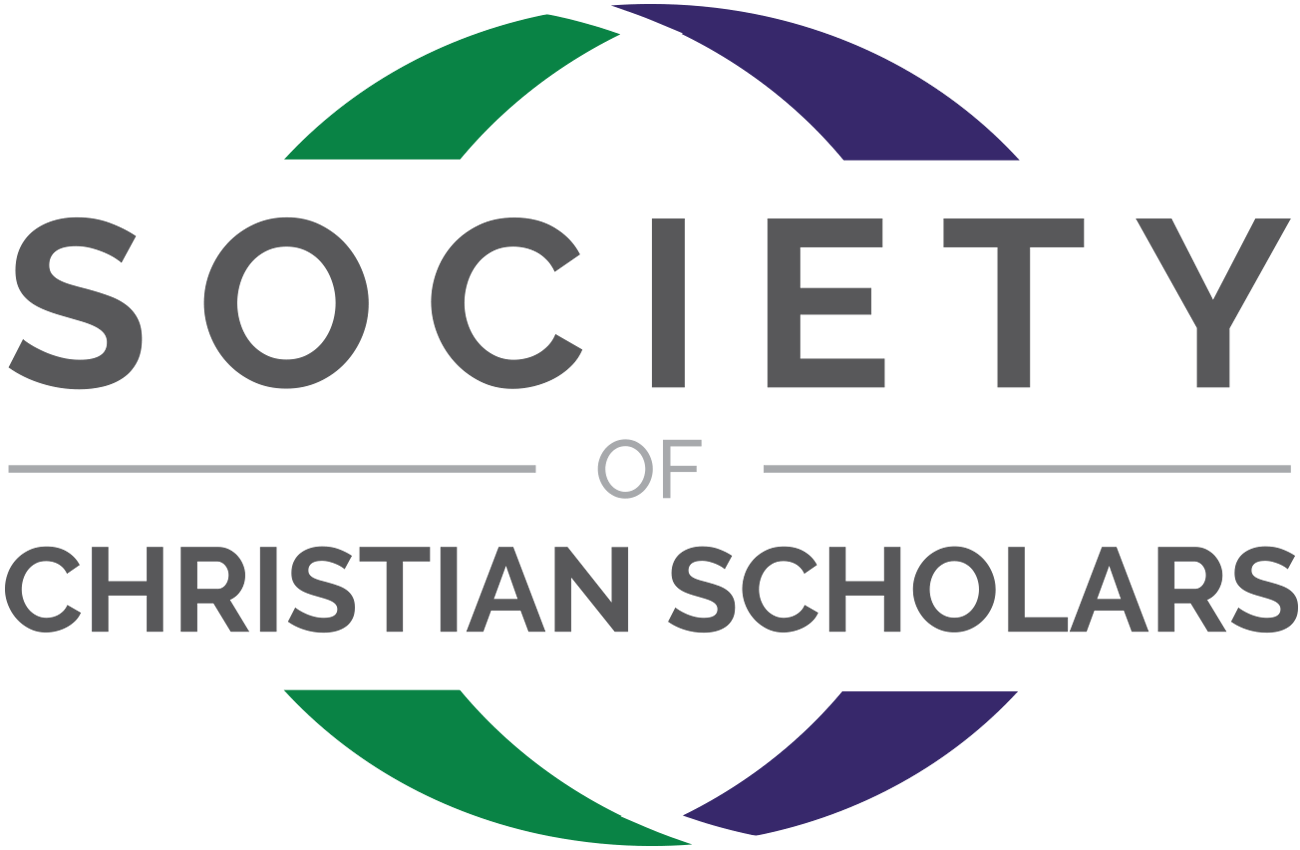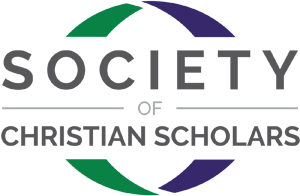|
|
Your colleagues, who are not yet Society members, can now benefit each month from Addenda. Simply forward this email to them and they can subscribe here.
|
|
|
|
Society Member Omar Montero
(Argentina)
|
|
|
|
This month we invited Omar Montero (Ph.D. Candidate, University of Buenos Aires) from the Faculty of Architecture at the University of Buenos Aires and Society of Christian Scholars South American Regional Representative to share some of his strategic activities as a Christian scholar. Omar is also one of the Society’s Regional Consultants.
|
|
|
I am very grateful for my relationship with the Society of Christian Scholars. Several colleagues within this organization have been mentoring me for the past year, training and advising me in different areas to equip me to do my work in an excellent way.
|
|
|
|
|
This year has been quite complicated for me. I continue teaching at my university in Argentina, but it is increasingly difficult to share our Christian worldview, as the social and political ideologies present amongst the faculty present a great challenge. This year, the country has been very unstable socially, economically, and politically. With the change of government model, we are already beginning to experience various consequences, but I think that our ministry is now much more relevant, because we can share the redemptive vision of Christian ideas, which are the ones that can truly transform a society.
I have finished all the seminars that I had to take for my Ph.D. and am preparing to write my dissertation next year. I beg you to be praying for this, it is very important for the ministry to finish this stage of study because the vision of the Society of Christian Scholars. The work that lies ahead is so big and a lot to manage.
|
|
|
|
(L) Small church group in my house, (R) Global Scholars small group.
|
|
|
|
As we move forward with this mission in Buenos Aires, we are working on several initiatives. We have a small group at home with people from the church, where we meet every fifteen days. We continue with our small group of students and academics with whom we meet every three weeks. The debates and very deep interpersonal relationships that we have built there have been very gratifying. Although the number of participants is still relatively small, they are very interested in being part of this movement in Argentina.
We are also developing another extension strategy, seeking to create a Christian study centre. We have already held two consultation meetings and have invited several academics and others to contribute their ideas. These colleagues have given us valuable local perspectives in each area of the prospective centre’s development, helping us to see the real needs of our academic context so that we can draw up an action plan and specify our objectives, if the Lord so provides.
|
|
|
|
The development of the Christian study centre.
|
|
|
|
We are very motivated by what the Lord can do, and we covet your prayers as we seek to make wise decisions at each stage of our work.
|
|
|
|
A Glimpse into a Society Member’s Research
Dr. Viacheslav “Slavik” Lytvnynenko, Czech Republic
|
|
|
|
The Society recently asked Dr. Viacheslav “Slavik” Lytvnynenko (Researcher and Lecturer in Ancient and Byzantine Philosophy and Greek Patristics at Charles University in Prague, Czech Republic) to tell us about his recent book Athanasius of Alexandria, Oratio II contra Arianos: The Old Slavonic Text and English Translation.
|
|
|
|
Dr. Lytvynenko and his recently published book.
|
|
|
|
My book falls under the category of a “critical edition,” and this means that its main purpose is to provide a text that, until now, has existed only in the form of medieval manuscripts. It begins with a brief introduction that explains the origin and history of the text and follows with a reconstructed version of the text in Old Slavonic, along with my translation into English.
My work on this book began in 2015 after I discovered several fifteen-century manuscripts with the Old Slavonic translation of three theological texts by Athanasius of Alexandria written around A.D. 339–340. Originally, these texts were composed in Greek, and their purpose was to combat the so-called Arian doctrine of Christ that believed Jesus to be a created being and not fully God. Hence the name of Athanasius’ texts is “Orations against the Arians,” and we have three of them. The orations were written during Athanasius’ exile in Rome when the Arian heresy was making inroads in the eastern part of Christendom. His work was instrumental in defeating Arianism, and it remained influential during the many centuries after him.
In A.D. 906 the orations were translated into Old Slavonic from the best Greek manuscripts in Eastern Bulgaria. Since then these Greek manuscripts were lost, and some parts of the surviving Greek orations underwent significant changes and corruption. This situation influenced my decision to make the Old Slavonic translation of the collection available in a critical edition. This book is the first of three volumes.
Besides their value as a classical Christian text, Athanasius’ work is a beautiful example of how Christian faith spread among the Slavic nations, whose very alphabet was invented in the ninth century so that they could communicate the gospel in their own tongue.
Learn more about Dr. Lytvnynenko’s book.
|
|
|
|
Do You Need a Grant?
We are now accepting applications for the annual Global Scholars Grant. The Grant Evaluation Committee will administer approximately ten grants of between 500 and 2,000 USD! The purpose of these grants is to provide funding to help Society members become better equipped to fulfill their calling in academia. Apply today for these grants!
And remember, the Society Editorial Services is available to help edit your grant proposal!
|
|
|
|
We Are (Still) Listening!
A few months ago the Society once again asked for your anonymous feedback, and some of you replied with helpful advice. Thank you!
Both affirmations and constructive criticisms were offered. For example, one Society member encouragingly said, “The webinar topics so far are all within my fields of study and my work! And the job board provides a wide range of jobs globally!” Another member said, “The framework/layout of the profiles in the Member Directory is uninteresting. I recommend a design that resembles LinkedIn. Maybe also offer chat rooms where a specific topic is discussed in a form where members feel like they’re sitting down and having coffee with colleagues.”
Explore here the Society’s responses to these comments and others.
|
|
|
|
Europe Conference:
“Building Community in Fractured Societies: Challenges for Christians in Higher Education”
When: 22–24 April, 2020
Where: Budapest, Hungary
Cost: €320 ($360 US or $470 CDN)
Financial Aid Available for non-presenters (application deadline: 31 January)
Registration Deadline: February 10, 2020
More information
Want to attend the Budapest conference in April but need financial assistance?
There still may be time to receive some help, but time is running out! BEFORE you register, read and follow the following instructions: Financial aid is available for conference participants. Priority will be given to conference presenters with documented financial need, particularly from Central/Eastern Europe and Eurasia. Yet aid can be considered for any conference participant. First, the financial aid form should be completed and submitted as a PDF attachment to office@inche.one no later than January 31, 2020. Please note that completed financial aid applications will be considered on a first-come, first-served basis. Second, based on the financial aid decision, the registration form should be completed with the discount code provided. The separate financial aid application form mentioned above is available HERE.
|
|
|
|
Society Webinar this week!
|
|
“On Teaching Virtue”, Dr. Jan Hábl
Thursday, 16 January 2020 at 1500 GMT
Are human beings inherently good or evil? If we are good, why do we do bad things? If we are evil, how can we learn to do the good? Can virtue or the good be taught? If yes, how and to what extent?
|
|
|
|
|
Jan A. Comenius (1592-1670), a Czech educational reformer and often considered to be the father of modern education, has much to say about this conundrum.
Join us on Thursday, 16 January 2020 at 1500 GMT as Dr. Jan Hábl, Professor of Pedagogy at the University of Hradec Králové (Czech Republic), discusses these questions in light of Comenius’ contributions to modern education. Please register below.
Dr. Hábl has written a number of books and articles including Even if No One is Looking: Foundational Questions of Ethical Education (Wipf & Stock, 2018), On Being Human(e) (Wipf & Stock, 2017), and Character Formation: A Forgotten Theme of Comenius’s Didactics (2011). He is also a pastor in Církev bratrská (Free Evangelical Church) and a happy husband and father of two children.
|
|
“Living Tech-Wise Lives by Faith”, Dr. Catherine Crouch
Saturday, 1 February 2020 1430 GMT
How can we live ‘tech-wise’ lives by faith? Join us for this webinar, co-hosted with InterVarsity-USA, on Saturday, 1 February 2020 at 1430 GMT as Dr. Catherine Crouch addresses this question with respect to the academy and the home in light of her research into membrane interactions, nanoparticle physics, and physics education.
|
|
|
|
|
Dr. Crouch is a Professor of Physics at Swarthmore College in Pennsylvania (USA). She will also share some practices she and her husband, Andy Crouch, have used in their family, which Andy discusses in his recent book, The Tech-Wise Family: Everyday Steps for Putting Technology in Its Proper Place.
This webinar is free to anyone who is interested! Society members whose membership includes webinars, please register below. All other members, students, and friends of the Society can register by clicking HERE.
|
|
|
|
Subscribe to Addenda!
Not Yet a Member of the Society of Christian Scholars? Join Now
|
|
|
|
|

